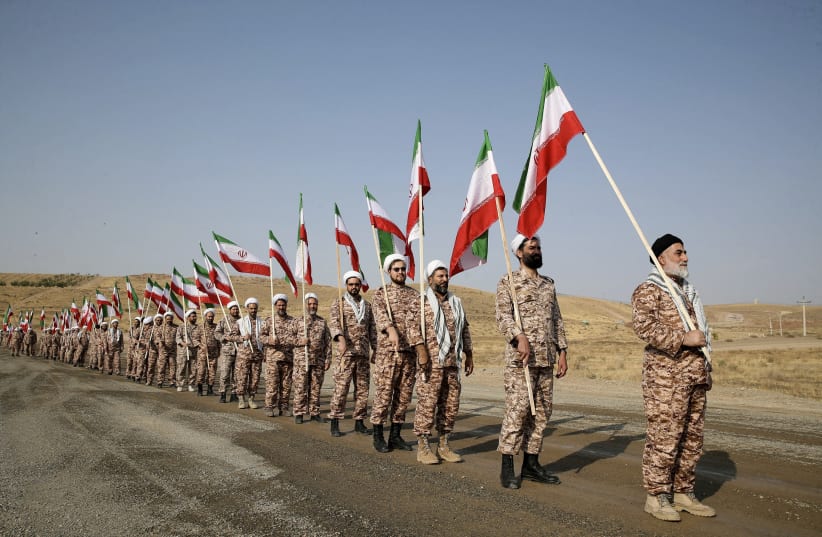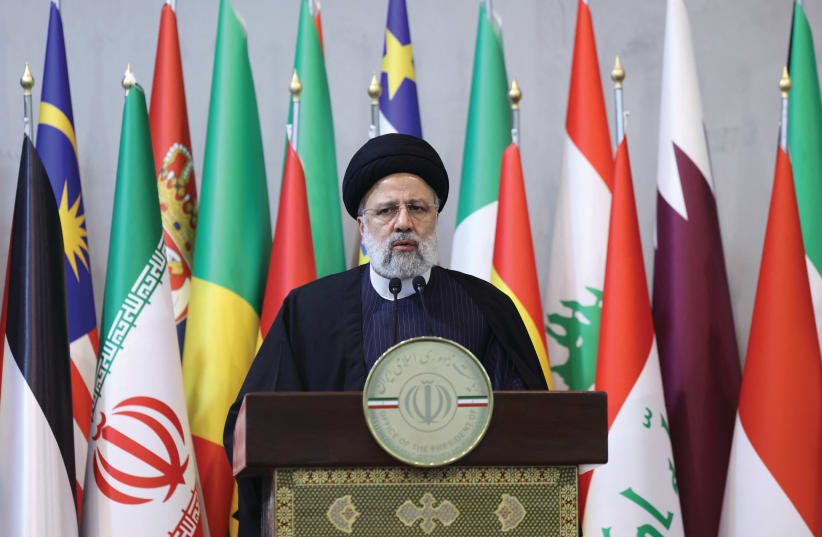Iran has not stopped issuing threats of revenge since the killing of the prominent Iranian Revolutionary Guard commander Reza Mousavi in an Israeli raid that targeted the Sayyida Zeinab area in the Syrian capital, Damascus.
President Ebrahim Raisi promised that Israel would “pay the price for its crime,” while Foreign Minister Hossein Amir Abdollahian said that Israel would have to wait for a difficult countdown.
Meanwhile, the spokesman for the Iranian Defense Ministry expressed that his country reserves the right to respond to the assassination of Mousavi in the appropriate place and time, adding that the response will be “decisive, effective, effective, and intelligent.”
Indications of a strong Israeli message
The evidence indicates that the assassination of Mousavi was an Israeli move that carried a strong message to deter Iran, and my conviction is that it was a very carefully calculated message, both in terms of selecting and defining the “target” and the timing.
It is a message of “necessity” among the options available to the Israeli decision-makers in light of Iran’s attempts to impose a complete strategic blockade on Israel by targeting it on several fronts (Lebanese Hezbollah from the North; the terrorist Hamas movement from the South; the Yemeni Houthi group; the Iraqi Shi’ite factions; and Iranian-funded groups from within Syrian territory), which explains the targeting of Mousavi, who is known to be the mastermind of the plans of the Revolutionary Guard to transfer Iranian weapons to Syrian territory and by extension, to Lebanese Hezbollah.


Analysis of the evidence indicates that Iran is seeking to increase pressure on Israel and on the United States by exploiting the Gaza war front in various ways. There is no doubt that it is communicating with Hamas leaders to ascertain the limits of their combat capabilities and the horizon available to them to continue the clash with the Israeli army.
Iran wants to achieve several goals, some of which are strategic and others operational. Teheran wants to shuffle the cards and redraw the rules of the game in the Middle East region according to its strategic interests, including halting the normalization process between Arab countries and Israel.
Additionally, it is pressuring the US to withdraw its forces stationed in Syria, Iraq, and the Arabian Gulf region in general and is attempting to strengthen Iranian influence in regional international waters through its Houthi proxy.
Iran also aims to try to impose a total or partial naval blockade on Israel, to plunge it into an internal crisis, to preoccupy it with its internal security, to challenge its army’s ability to protect its people, and then to exhaust it in existential conflicts with militia arms and divert its attention from any attempts or thoughts about target Iran itself, such as in launching a pre-emptive strike against its nuclear facilities.
How will Iran achieve these goals?
The most pressing question now is: What is the expected Iranian reaction to the assassination of Mousavi?
In answer to this question, it can be pointed out that Iran has not yet responded clearly to the assassination of the most prominent IRGC commander, General Qasem Soleimani, and has contented itself with calculated conditional operations in which it balances the calculations of response and escalation with the American side.
Consequently, its overall responses in this context have been dull and unconvincing, at least compared to its fiery statements and with regard to the position that Soleimani occupied within the regime’s hierarchy.
THEREFORE, BY analogy to the above, and taking into account the differences in the Iranian strategic vision for both the US and Israel, it can be said that the Iranian response to the killing of Mousavi will be initially through one of the arms loyal to Tehran and not directly, especially at present, when the American and Israeli sides are uniting over the backdrop of the Gaza war in a way that makes any Iranian attempt to respond directly tantamount to entering into an open confrontation with both allies.
In light of the above, it is possible to understand the common denominator between the statements of Iranian officials, which talks about the appropriate place and time to respond, which means that the Revolutionary Guard wants to gain the necessary time to think about the time, place, and goal.
It is also noted that the Iranian Defense Ministry spokesman indicated that the response will be “decisive, effective, and smart,” meaning that the matter is likely not related to a conventional military operation.
Rather, it will proceed according to what the Revolutionary Guard leadership sees in terms of effective strategic impact without risking opening a front of open conflict with Israel.
That is, Iran adheres to the rules of the game that have prevailed so far, which are to remain within the limits of what is permissible at the level of action and reaction, that is, to carry out limited-impact operations without moving to broad and direct conflict, and to measure its action accordingly.
This is something that suits both the Israeli and Iranian sides in light of the current strategic environment, as Tehran does not want to engage in a direct war and prefers to remain within the circle of proxy war, while Israel may not currently wish to gamble on opening a new conflict front with what can be called the command center of the “axis of resistance” – Iran.
Israel is facing continuous operations by all members of the Axis in its geographical surroundings and such a decision could exacerbate the level of escalation of arms in a way that threatens Israel’s internal security, especially on the Hezbollah front.
In the context of reading Iranian strategic thinking and possible response scenarios to the killing of Mousavi, it can be said that Iran will continue to bet on its proxies, whether in deterring Israel or responding to it later.
Therefore, it is expected that any Iranian response to the killing of Mousavi will be within this framework and through one or all of these agents.
The writer is a UAE political analyst and former Federal National Council candidate.
